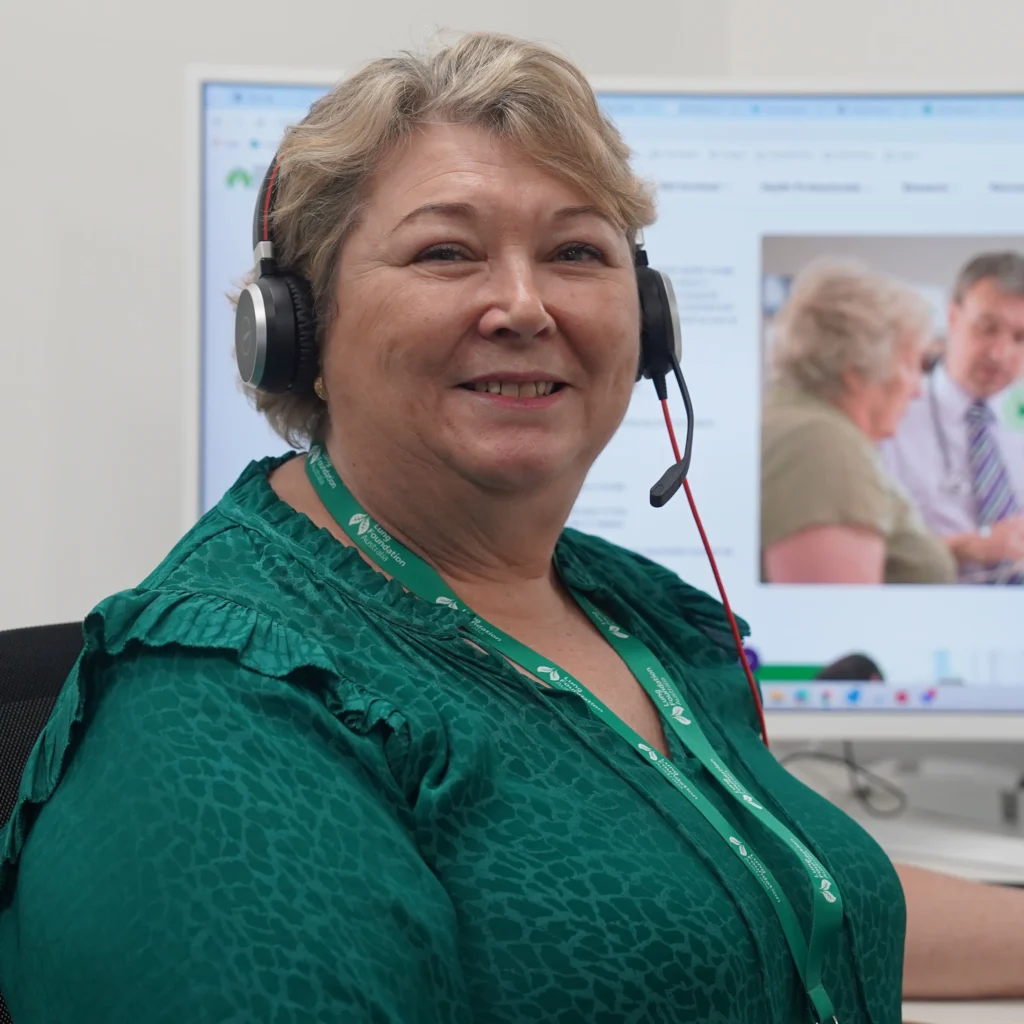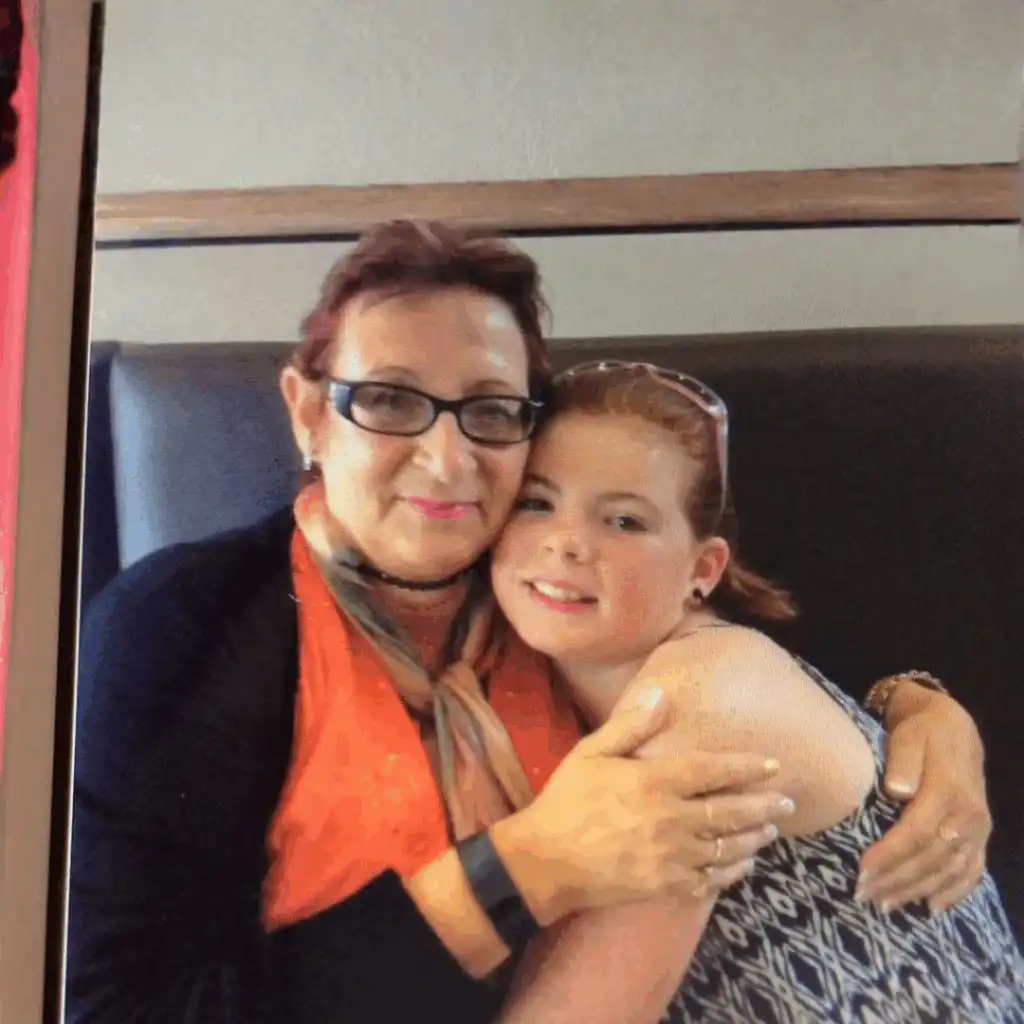Understanding what treatments are available for lung cancer, and what these treatments mean for your wellbeing and quality of life, may help you to deal with some of the anxiety that accompanies such a complex disease.
The medical information you receive about lung cancer treatments may seem confusing and you will likely also have emotional and practical concerns about aspects such as side effects.
Questions: If newly diagnosed, you may have many questions for your lung cancer specialist; for support with ones to consider asking, click here.
The treatment options for lung cancer depends on your type of cancer, stage, lung function and health. The treatments may aim to shrink the tumour size, relieve your symptoms, improve your day-to-day quality of life and prolong your life expectancy.
Lung Cancer Support Nurse Nicole said feelings of fear and anxiety can be reduced when a patient understands their type of treatment and why they have been prescribed it.
“I speak to a lot of patients who report being confused about the types of lung cancer treatment they have been offered or prescribed,” Nicole said.
“ Educating patients on the different types of lung cancer treatments and their potential side effects can help patients make an informed decision.”
Types of lung cancers
Non-small cell lung cancer (NSCLC) makes up about 85% of all lung cancers and is a disease in which malignant cells form in lung tissuesi. It can be treated with targeted therapy, immunotherapy, surgery, radiation or chemotherapy. Small cell lung cancer, meanwhile, generally starts in the middle of the lungs and spreads more quickly.
Early stage non-small cell lung cancer is usually treated with surgery to remove the tumour, and sometimes chemotherapy to prevent it returning.
Locally advanced (stage 3) treatments may include radiation, immunotherapy or targeted therapies. For advanced (stage 3) NSCLC, palliative therapies may be introduced, with the aim being to slow the cancer’s spread and manage symptoms.
At a later stage of diagnosis and for small cell lung cancer, surgery is not usedii.

Looking at the needs of a patient newly diagnosed with lung cancer
If you have recently been diagnosed with a lung cancer, a Lung Foundation Australia webinar features healthcare professionals talking about support and needs.
What do all these lung cancer treatments actually mean?
- Surgery: for early (Stage 1 or 2) non-small cell lung cancers. May see part of a lung lobe removed, an entire lung lobe removed or the whole lung removed.
- Radiation therapy: high-energy rays (similar to X-rays) kill or damage the cancer cells so they cannot grow, multiply or spread. May be offered in combination with surgery or chemotherapy.
- Chemotherapy: medicines to shrink, kill or slow the growth of cancer cells. Usually given intravenously but sometimes as pills/tablets.
- Targeted therapy: up to a quarter of lung cancer tumours carry a genetic mutation (“glitch” driving the cancer’s growth”) that may be targeted with medications[i]. Targeted therapies are given in tablet form and are currently prescribed for advanced or recurrent lung cancer.
- Immunotherapy: allows the immune system to recognise and kill cancer cells. It is an intravenous therapy (given as an infusion into a vein) and works by blocking proteins produced by some cancers.
- Clinical trials: research studies that look for new ways to prevent, detect or treat a disease. when clinical trials show that a new treatment is better than the standard treatment, the new treatment may become the standard treatment. [ii]
- Palliative care: for advanced lung cancers, may improve symptoms. Aims to help you live as long as possible in the best way you can and does not mean giving up hope.

Lung Cancer Support Nurse
Our Lung Cancer Support Nurse is a telephone-based service for patients, their families and carers at any stage of their lung cancer journey. Our experienced oncology nurse can provide evidence-based information regarding diagnosis, treatment, symptom management and wellbeing. Contact our Lung Health Helpline for a booking on freecall 1800 654 301 or click here.
[i] https://www.cancer.net/blog/2018-06/just-diagnosed-with-lung-cancer-answers-expert
[ii] https://www.cancer.gov/types/lung/patient/non-small-cell-lung-treatment-pdq#_164
Was this page helpful?
Good job! Please give your positive feedback
How could we improve this post? Please Help us.



